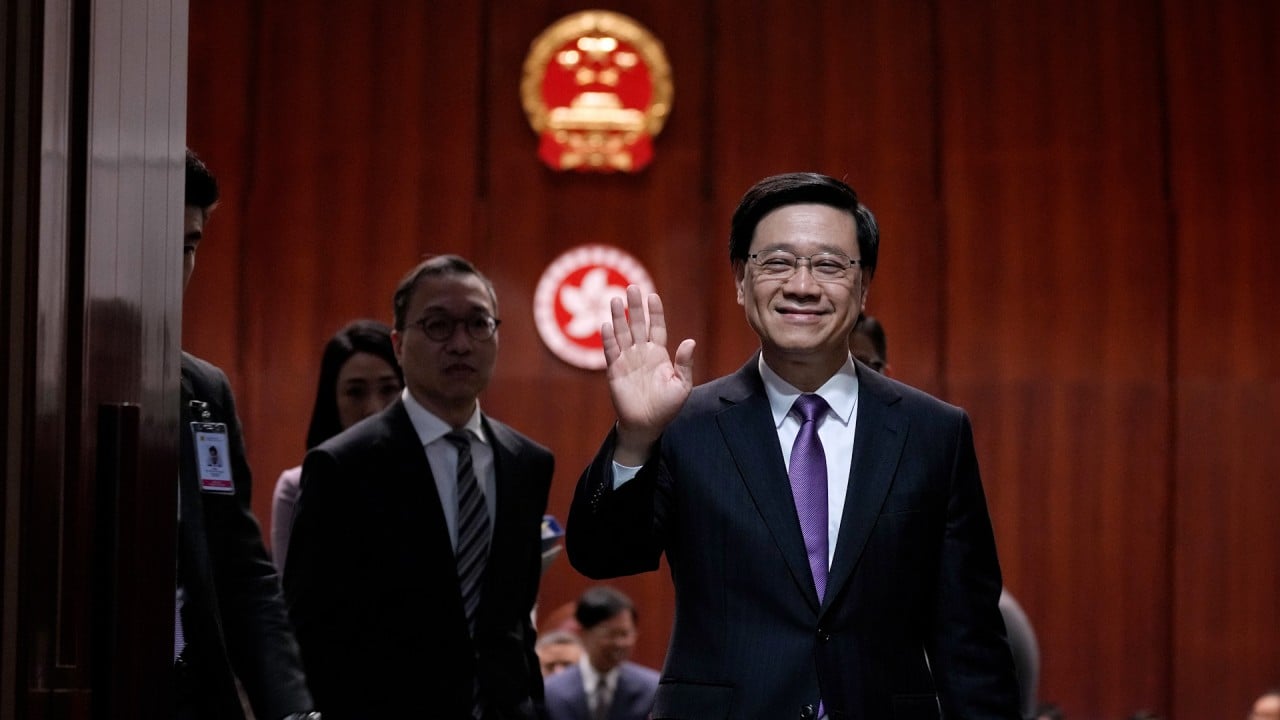Will Hong Kong politicians be targeted by foreign powers over their role in Article 23 law? Some are avoiding trips to US in near future
The US State Department said Washington was “analysing” the legislation and its “incredibly vague” clauses to gauge any potential risks to American citizens. It stopped short of saying whether it was planning any retaliatory measures.
The US Congress has yet to finalise several bills targeting Hong Kong, including one seeking sanctions against nearly 50 local officials and judges. Another aims to close the city’s three trade representative offices in the country.
The new law, formally known as the Safeguarding National Security Ordinance, takes effect on Saturday.
Some Hong Kong politicians, speaking anonymously, told the Post on Wednesday that their peers were wary of potential repercussions, although none of those who spoke had been explicitly identified as targets for potential US sanctions.
One insider said “at least a handful of” political and business delegates on the Chinese People’s Political Consultative Conference planned to avoid setting foot on US soil in the coming months after they concluded it would be “the most sensitive of periods”.
“Their assessment is that it is prudent to refrain from travel to the United States at least for now. This is to avoid being questioned for a long time or being troubled by authorities,” the source said.
Lam at the time complained about the difficulties of using credit cards after being sanctioned. An insider who recently met the former chief executive said she was still using cash for her daily spending.
Another politician said on Wednesday that concerns over possible repercussions had been significantly “amplified” due to the lightning-fast scrutiny of the Article 23 law by legislators, but predicted such concerns would gradually subside after the US presidential election in November.
The source said the group had already “made arrangements” concerning their assets after seeking legal advice.
Asked about his preparedness for potential sanctions, Leung said: “Whatever comes, it’ll come. We don’t mind. Other countries take measures to protect their national security, so why can’t we?”
Martin Liao Cheung-kong, who chairs the bills committee, said external factors would not sway members’ decision, adding: “we’ll just go and do the right thing”.
Lawmaker and committee member Jeffrey Lam Kin-fung said he was also not worried.
“I only thought of one thing, which is that I must finish this responsibility or mission as soon as possible,” he said.
Fellow committee member Chan Siu-hung dismissed concerns about potential retaliatory measures.
Beijing slams Britain, EU for ‘smears and attacks’ on Hong Kong’s Article 23 law
On Tuesday, UK Foreign Secretary David Cameron slammed the Safeguarding National Security Ordinance and said it failed to provide certainty for international organisations, such as diplomatic missions in the city, and enabled the “continuing erosion of freedoms of speech”.
The Council of the European Union issued a statement that argued the legislation could exacerbate the erosion of fundamental freedoms in Hong Kong and potentially affect the work of its local office and its member states’ consulates.
China’s Ministry of Foreign Affairs voiced its strong disapproval of the “smears and attacks” from Western nations, expressing its firm opposition to any external interference in Hong Kong matters.
Benjamin Barton, an associate professor at the school of politics, history and international relations at the University of Nottingham’s Malaysian campus, said he doubted the EU would take further actions beyond public criticisms.
The EU had “more pressing external issues at stake” that rendered the situation in Hong Kong a lesser priority, he added.
Hong Kong must fight blowback after passing Article 23 law: analysts
Barton said that if Donald Trump returned to the White House, he could exploit the situation in Hong Kong to exert maximum public pressure on China, as he had done in the past.
But considering Trump “expended very little time and energy on the topic” in his past presidential term, any retaliatory measures would remain relatively inconspicuous, the scholar said.
“With the current global context having shifted towards events unfolding elsewhere, like in Ukraine and Gaza, the heat and pressure has somewhat receded on Hong Kong for China, leaving it less susceptible to being caught in geopolitical headwinds,” Barton said.
Additional reporting by Harvey Kong and Emily Hung
